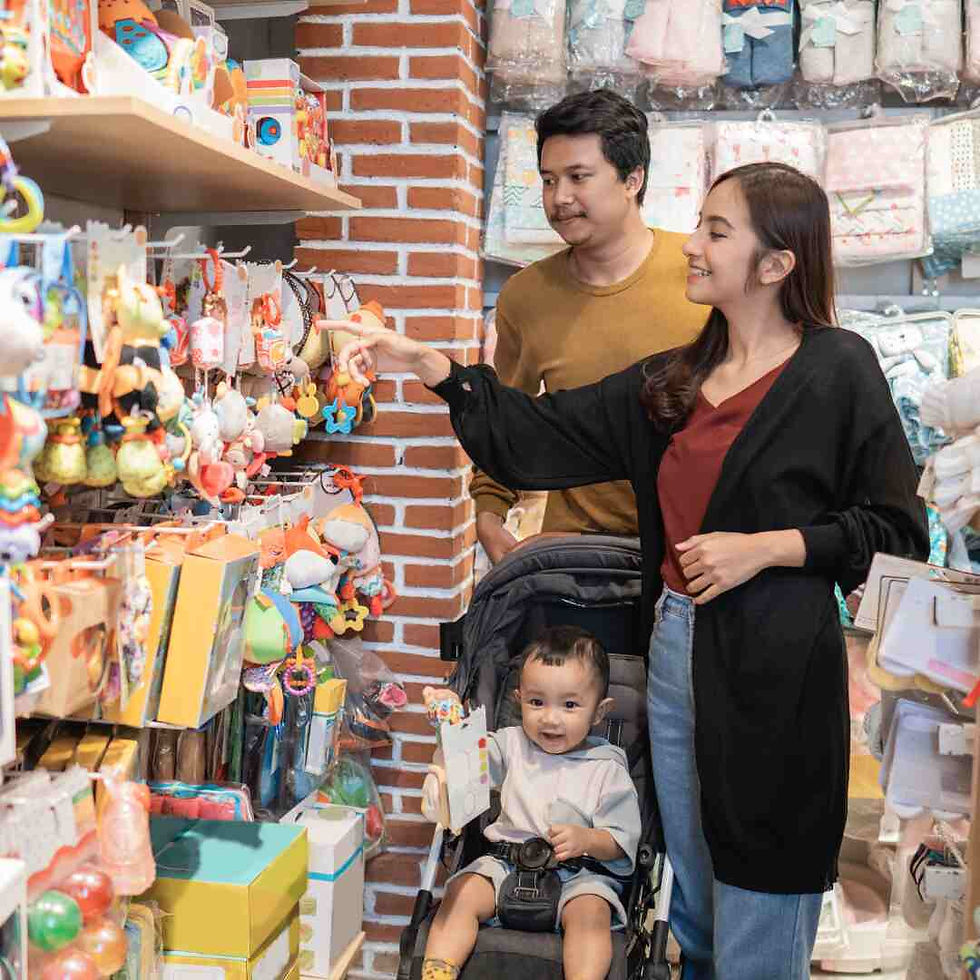6 Important points to know Before You Buy Baby Clothes!
- Mar 1, 2024
- 3 min read
Updated: Apr 19, 2024

In present bustling life, with constant advertising and a rapidly evolving fashion scene, it's tempting to make impulsive clothing purchases. But before you hit "buy" on that trendy Kurta or kids wear, take a step back and consider the journey those clothes have taken. This blog post aims to empower you to become a more conscious consumer by encouraging you to "Know About Them" before you buy your clothes.
Why Should You Know About Clothes before Purchasing them?

There's more to clothing than just aesthetics. What if we bought less, bought better, and bought with knowledge? This blog post is your guide to conscious consumption in fashion, encouraging you to be informed before you invest in a new piece. Here are 6 important points for you in understanding the story behind your garments is crucial:
1. Know Your Style:

Take a step back and establish your own distinctive style before you even consider trends. Which hues, designs, and silhouettes give you a sense of security and ease? What lifestyle requirements do you have, and how will these outfits fit into your everyday schedule? Being well-aware of your personal style aids in preventing impulsive purchases that might not be consistent with who you really are.
2. Research about Brand and the Process:

Consumers of today are capable of making wise decisions, if they spare some time and interest on doing some research . Learn about the brand and its policies before making a purchase. Seek out companies who are dedicated to ethical production, sustainable materials, and fair labor standards. This guarantees that the businesses you support with your money share your beliefs.
3. What is best Fabric to opt?

Not all clothes are created equally. Invest in quality materials like organic cotton, linen, or ethically sourced wool, which are often more durable and comfortable in the long run. Understanding the manufacturing of a garment, like Dyes they use whether they are chemical free dyes or not? Or like double stitching or strong seams, also helps you choose pieces that will last longer, reducing Landfills.
4. Assess the Cost:

Consider the true cost of the garment, not just the price tag. This includes the environmental and ethical impact throughout its lifecycle. Ask yourself if you're willing to pay the price for quality and responsible production.
5. Make Versatility a Priority:

Prioritize adaptable pieces that are simple to combine and match with your current wardrobe rather than following fads. This method lets you make the most of your wardrobe while fostering creativity.
6. Examine Vintage and Second-Hand Options:

Go antique and used goods stores to embrace the one-of-a-kind and environmentally friendly. In addition to lowering your environmental footprint by giving used clothing a new lease on life, these hidden jewels frequently conceal riches just waiting to be discovered.
Smart Purchasing in Practice:
For Example, Let's say you have your eye on a new Kurta. This is when informed purchasing becomes relevant:
Do you already have a few identical Kurta?
Does the style and wash go well with what you already own?
Is the brand renowned for using ecological resources and moral business practices?
What is the composition of the material? Are you able to give proper care?
You can decide whether or not the Kurta is a wise investment for your wardrobe by taking these factors into account.

Making the effort to "Know About Them" will help you choose your clothes with knowledge. Being mindful as a customer starts with taking an intentional attitude to apparel. TinyKiddo empowers Eco-Friendly clothes that are made up of 100% Premium Cotton, Azo-Free dyes. Every product is Handmade keeping Babies and Toddlers in mind. We never compromise on our values and quality of the Product. At TinyKiddo, we believe - fashion is about expressing yourself, and conscious consumption allows you to do so with integrity and responsibility.
Thank you for sparing your valuable time knowing this information! Share your tips for conscious clothing consumption in the comments below! Let's build a community that values quality, sustainability, and individual style.







Comments